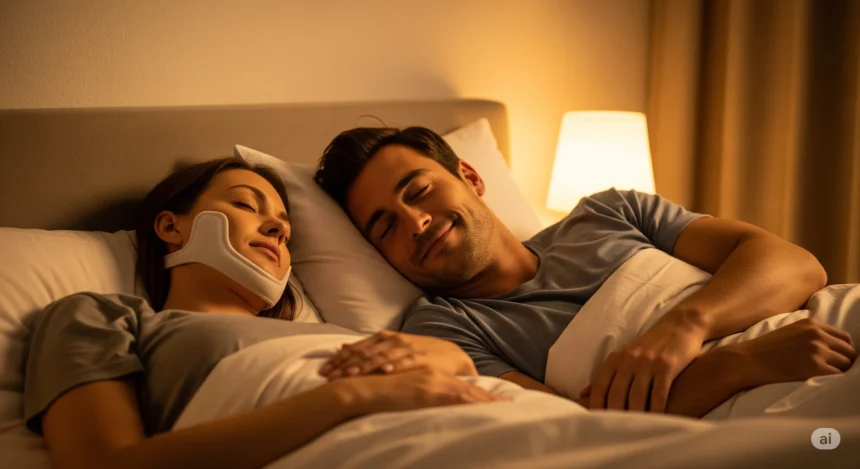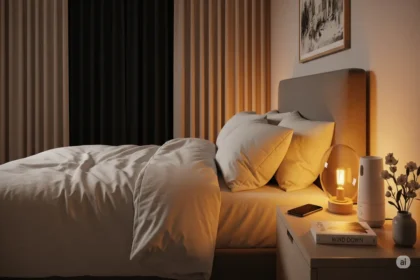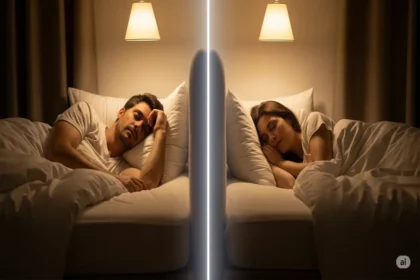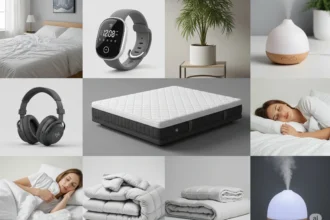Discover the best anti-snore devices to improve sleep for you and your partner. Learn how they work and which options may help you enjoy quieter nights.
Understanding Snoring and How Devices Help
Snoring occurs when the airflow through the mouth and nose is obstructed. As air forces its way through a narrowed passage, it causes the soft tissues in the throat to vibrate, creating that familiar, often irritating sound. Anti-snore devices primarily work by:
- Keeping the Airway Open: Many devices aim to physically adjust the position of the jaw, tongue, or soft palate to prevent them from collapsing and obstructing the airway.
- Encouraging Nasal Breathing: Some devices focus on improving airflow through the nose, which can reduce mouth breathing and associated snoring.
Common Types of Anti-Snore Devices We’ve Explored
The market is flooded with options, but they generally fall into a few main categories:
- Mandibular Advancement Devices (MADs): These are oral appliances that gently push the lower jaw forward, which in turn moves the tongue and soft palate forward, opening the airway. They are often custom-fit or “boil-and-bite” for a personalized fit.
- Tongue Retaining Devices (TRDs): These devices hold the tongue in a forward position using suction, preventing it from falling back into the throat.
- Chin Straps: Simple straps that hold the jaw closed during sleep, encouraging nasal breathing and preventing mouth snoring.
- Nasal Dilators/Strips: These are inserted into or placed over the nostrils to widen the nasal passages, improving airflow for those whose snoring originates from nasal congestion.
- Smart Pillows/Devices: More advanced solutions that can detect snoring and subtly adjust head position or emit vibrations to encourage a change in sleep position.
Key Benefits We’ve Observed
- Reduced Snoring Volume & Frequency: The most immediate and appreciated benefit for both snorers and their partners is a significant decrease in snoring.
- Improved Sleep Quality: When snoring is reduced, sleep becomes less fragmented, leading to more restorative rest for everyone in the room.
- Enhanced Relationship Harmony: Let’s be honest, snoring can strain relationships. A successful anti-snore solution can bring back peaceful nights and improve overall well-being for couples.
- Non-Invasive Options: Many devices offer a non-surgical, non-pharmacological approach to managing snoring.
What to Consider When Choosing an Anti-Snore Device
Finding the right device is often a process of trial and error, as what works for one person might not work for another. Here’s what SlumberJunction recommends focusing on:
- Cause of Snoring: Understanding why you snore (e.g., nasal congestion, tongue falling back, jaw position) can guide your choice.
- Comfort & Fit: The device must be comfortable enough to wear consistently throughout the night. Read reviews about ease of molding (for MADs) and overall feel.
- Ease of Use & Cleaning: Simple to insert, remove, and maintain is key for long-term adherence.
- Material Quality: Look for medical-grade, BPA-free materials.
- Trial Periods/Return Policies: Given the trial-and-error nature, a good return policy is invaluable.
- Consult a Professional: For chronic or severe snoring, especially if accompanied by daytime fatigue or gasping, consult a doctor to rule out sleep apnea.
Who Is This For?
Anti-snore devices are ideal for:
- Individuals whose snoring disrupts their own or their partner’s sleep.
- Those seeking a non-invasive solution to reduce snoring.
- People with mild to moderate snoring (always consult a doctor for severe cases or suspected sleep apnea).
- Partners of snorers desperate for a quiet night.
Disclaimer: The information provided in this article is for general informational purposes only and does not constitute medical advice. It is not a substitute for professional medical advice, diagnosis, or treatment. Always seek the advice of your physician or other qualified health provider with any questions you may have regarding a medical condition. Never disregard professional medical advice or delay in seeking it because of something you have read on this website.















